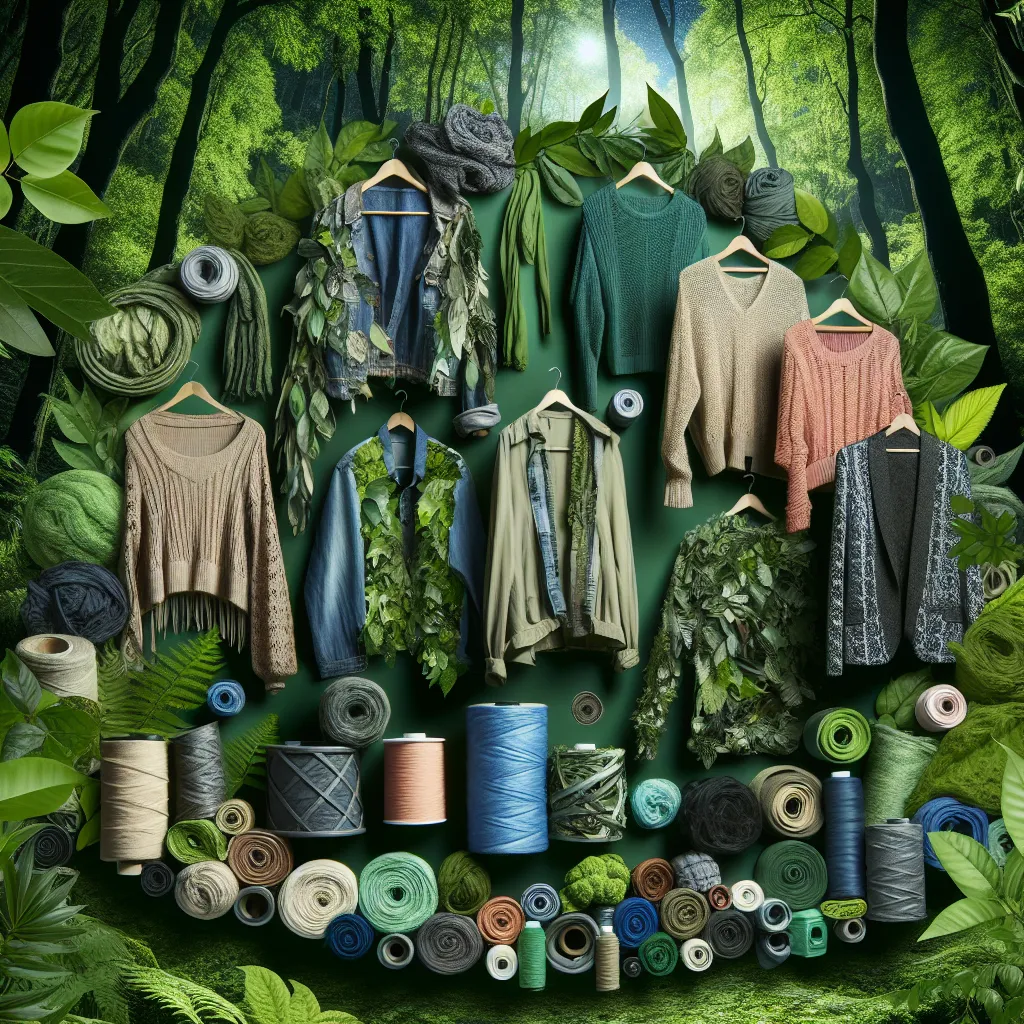
Exploring the Rise of Eco-Friendly Fashion Trends
The Evolution of Sustainable Materials in the Fashion Industry
In recent years, the fashion industry has experienced a significant shift towards eco-friendly and sustainable practices, leading to the rise of eco-friendly fashion trends. One of the key aspects driving this transformation is the evolution of sustainable materials being used in fashion production. Traditionally, the fashion industry has been heavily reliant on non-renewable resources and environmentally harmful materials. However, with growing awareness of the environmental impact of the fashion industry, designers and manufacturers are increasingly turning to sustainable alternatives.
One of the pioneering sustainable materials making waves in the fashion industry is organic cotton. Unlike conventionally grown cotton, organic cotton is cultivated using methods and materials that have a low impact on the environment. This includes the exclusion of genetically modified seeds and the reduction of harmful chemicals in the production process. As a result, organic cotton not only minimizes environmental damage but also promotes better conditions for the workers involved in its production.
Another noteworthy sustainable material gaining prominence is recycled polyester, often derived from post-consumer plastic bottles. By utilizing recycled polyester, fashion brands are not only reducing dependence on virgin petroleum but also diverting plastic waste from landfills and oceans. This development aligns with the growing emphasis on circular fashion, where materials are recycled and reused to minimize waste and conserve resources.
Besides organic cotton and recycled polyester, innovations in sustainable materials extend to various other options such as hemp, Tencel (lyocell), and Piñatex (made from pineapple leaf fibers). These materials offer biodegradability, low environmental impact, and ethical sourcing, thus contributing to the overall sustainability of the fashion industry.
In conclusion, the evolution of sustainable materials in the fashion industry is driving a positive transformation towards more eco-friendly and ethical practices. As consumers increasingly prioritize sustainability in their purchasing decisions, the demand for fashion made from sustainable materials continues to grow. This shift not only benefits the environment but also presents opportunities for businesses to align with the values of conscious consumers and contribute to a more sustainable future.
The Impact of Ethical Production Practices on Fashion Trends
As the fashion industry continues to evolve, a noticeable shift towards eco-friendly and sustainable practices has emerged, significantly impacting current fashion trends. The rise of ethical production practices has played a pivotal role in reshaping the way consumers perceive and engage with fashion. This shift has been driven by a growing awareness of the environmental and social impact of fast fashion, prompting consumers to seek out alternative options that prioritize ethical and sustainable principles.
One of the key impacts of ethical production practices on fashion trends is the emphasis on transparency and accountability within the supply chain. Consumers are increasingly interested in understanding the journey of their clothing, from the sourcing of raw materials to the working conditions of the individuals involved in the production process. As a result, fashion brands are under pressure to adopt ethical and transparent practices, leading to a surge in demand for clothing that is responsibly sourced and manufactured.
Furthermore, the focus on ethical production practices has led to a rise in innovative and eco-friendly materials and technologies within the fashion industry. Sustainable alternatives such as organic cotton, recycled polyester, and biodegradable textiles are gaining momentum, offering consumers a wider range of options that align with their values. This shift towards sustainable materials has not only influenced the design and production process but has also contributed to the overall aesthetic of fashion trends, embracing a more natural and organic feel.
In conclusion, the impact of ethical production practices on fashion trends is undeniable, driving a significant transformation within the industry. As consumers continue to prioritize sustainability and ethical considerations, fashion brands are compelled to adapt their practices to meet these evolving demands, ultimately shaping the future of fashion towards a more sustainable and responsible ethos.
Changing Consumer Behaviors: Embracing Eco-Friendly Fashion
In recent years, there has been a notable shift in consumer behaviors towards embracing eco-friendly fashion. The increasing awareness of environmental issues and the impact of traditional fashion industry practices have led consumers to seek out sustainable and ethical alternatives. This evolving consumer mindset has ignited a surge in the demand for eco-friendly clothing and accessories made from organic, recycled, or upcycled materials. As a result, fashion brands are adapting to meet these changing preferences by incorporating eco-friendly practices into their production processes and supply chains.
Consumers are becoming more mindful of the environmental and social implications of their fashion choices, which has prompted them to prioritize eco-friendly options. They are actively seeking transparency and accountability from fashion brands, driving the industry towards greater sustainability. The shift towards eco-friendly fashion also reflects a deeper cultural trend of conscious consumerism, where individuals are aligning their purchasing decisions with their values and principles.
Furthermore, the influence of social media and digital platforms has played a pivotal role in shaping consumer perceptions and fostering discussions around sustainable fashion. As consumers become more informed about the environmental impact of fast fashion and textile waste, they are actively seeking out brands that prioritize eco-friendly initiatives and ethical production practices. This has led to a growing demand for eco-friendly fashion options across various market segments, indicating a fundamental transformation in consumer behaviors and preferences.
In conclusion, the rise of eco-friendly fashion trends is closely intertwined with the changing behaviors of consumers who are increasingly embracing sustainable and ethical fashion choices. This shift signifies a positive evolution towards a more environmentally conscious and socially responsible fashion industry, driven by the values and preferences of the modern consumer.



